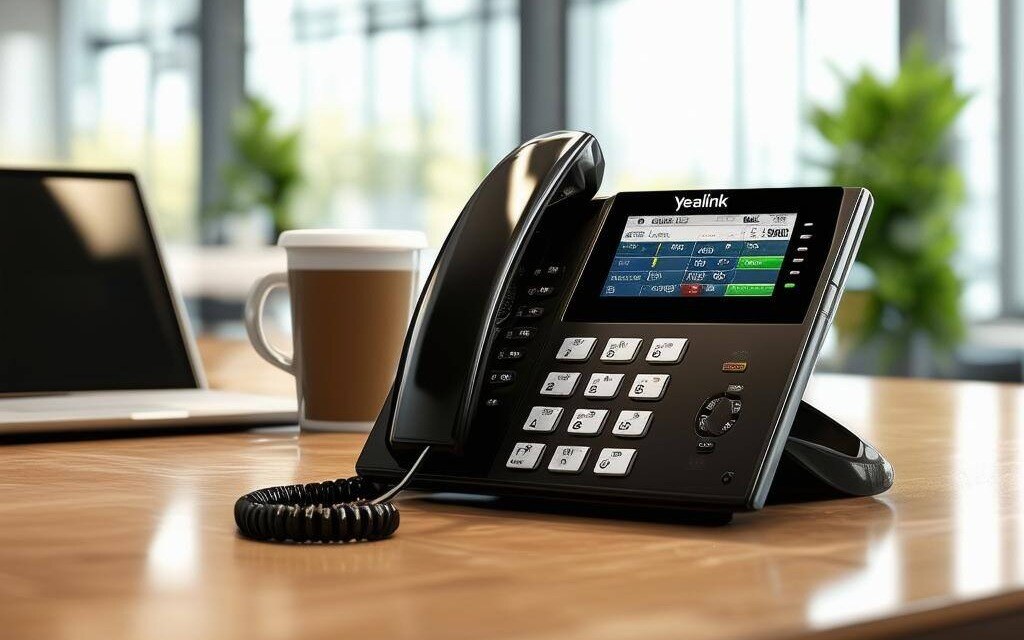What Are Telecom Tips for the Outsourced CTO?
October 16th, 2017
5 min read

If you act as an account manager for a managed service provider, you play a crucial role within your organization. At Tele-Data Solutions, we appreciate that you’re always looking for ways to serve your existing client base better, to strengthen existing professional relationships, and to make technology-specific recommendations where appropriate.
Even though your company might not directly offer phone system solutions, you are tasked with helping your clients with all their other vendor relationships and technology-related needs—and proactively catching potential issues before they become problems.
With that in mind, here are seven ways you can provide concrete value to your customers when it comes to their telecom needs.
- Help them identify the terms of their current phone line and phone system maintenance contracts.
This is relatively easy information to find out, but so many companies either don’t know their telecom contract terms or forget they’re even in contracts. That’s a big problem because these documents can be three-year commitments with automatic renewal.
If your customer doesn’t know the contract end date, it can lead to that contract being automatically renewed—and your customer being stuck in the same telecom situation for several more years. Trying to get out in the middle of a contract can be an enormous hassle—not to mention your customer might have to contend with the expense of early termination fees.
You can provide huge value to your customers by figuring out their T1 or phone line contract end dates (so they don’t automatically renew) and also determining when their phone system maintenance plans expire.
If the current phone provider says your customer’s agreement will not automatically renew and will continue month to month after the agreement ends, make sure your customer gets that in writing.
- Recommend a call flow audit.
A call flow audit is essentially an assessment of your customer’s existing phone communications—the good, the bad, and the ugly. It’s an onsite evaluation done through face-to-face communication, and it answers questions such as the following:
- How do you know if missed calls are getting returned in a timely manner?
- When your customers call before or after business hours, what process is in place?
- Are there remote employees or remote offices? How do you communicate with them?
- How long does it take for staff to respond to voice mails left in their mailboxes?
- When you’re busy, how long (on average) does a customer wait on hold?
- What happens if there’s an influx of inbound calls during peak times?
- How many abandoned calls do you experience in a day?
- How many calls does your staff receive in a day? How many calls do they make?
- Do you have the ability to quickly find a recorded call when a dispute occurs?
In our experience, many IT MSP account managers discover the majority of companies have never had a call flow assessment. Instead, IT account managers consistently find that their clients got phone systems programmed and installed over ten years ago and then never thought about them again. (When it comes to phone systems, it’s common to have this “set it and forget it” mentality.)
And this isn’t just small companies with minimal budgets. Even companies that do millions in revenue often have no strategic plan or technology in place they can utilize to better serve their clients and staff.
A call flow audit can uncover major communication problems within service departments—unchecked voice mails, lack of visibility into call reporting, long hold times, inbound calls going to the wrong location or person. All this quickly adds up to wasted time, confusion, upset customers, and, ultimately, lost revenue.
A few local phone providers, including Tele-Data Solutions, can perform a complimentary call flow audit for your clients. We consistently find this to be a win-win scenario from all our IT vendor partners. By having us perform a call flow audit, you can offer your clients a valuable, thorough, and illuminating report about potential telecom issues, and you also have a trusted local telecom expert to recommend to your other clients for VoIP-specific needs.
- Offer solutions for multisite businesses.
 If any of your clients own or operate a business with more than one location, educate them about the benefits of a cloud-based VoIP phone system. Multisite office environments typically have the most telecommunication challenges and, consequently, are the best candidates for communication-based improvement and cost reductions.
If any of your clients own or operate a business with more than one location, educate them about the benefits of a cloud-based VoIP phone system. Multisite office environments typically have the most telecommunication challenges and, consequently, are the best candidates for communication-based improvement and cost reductions.
One of the most important steps for these businesses is streamlining communication between all sites rather than having an independent phone system and phone carrier at each location. These businesses can lower their phone bills and increase communication efficiency by managing all calls through one portal. You can also suggest faster solutions, such as an intercom and instant messaging between sites for all internal communication. This leaves their phone lines fully open for incoming client calls.
- Point out opportunities to companies that are relocating.
 Do you have clients that are relocating soon? If so, it’s the perfect time for them to reevaluate their current telecommunications solutions. Because a phone solution will need to be installed at the new location anyway, it’s the most practical time to start fresh and upgrade to new phone hardware or even switch to a cloud-based VoIP phone solution.
Do you have clients that are relocating soon? If so, it’s the perfect time for them to reevaluate their current telecommunications solutions. Because a phone solution will need to be installed at the new location anyway, it’s the most practical time to start fresh and upgrade to new phone hardware or even switch to a cloud-based VoIP phone solution.
- Determine if their phone technology is out of date.
 Ask your clients what brand of phone they’re currently using. There have been great technological advances in the telecom industry over the past few years, and that means lots of phones are now obsolete or, at least, out of date. Even if their old phones technically work, they certainly don’t have the functionality and features available now. This means your clients aren’t capitalizing on all the opportunities to maximize communication efficiency—both internally and with customers.
Ask your clients what brand of phone they’re currently using. There have been great technological advances in the telecom industry over the past few years, and that means lots of phones are now obsolete or, at least, out of date. Even if their old phones technically work, they certainly don’t have the functionality and features available now. This means your clients aren’t capitalizing on all the opportunities to maximize communication efficiency—both internally and with customers.
If a phone system is too old and something goes wrong, it might not be serviceable. This could lead to a total phone system failure. That’s downtime during which nobody can receive or make any calls to that company. Helping your clients switch over to more modern and reliable technology can save them from these kinds of massive, costly problems.
- Walk your clients through call center software.
 If your clients routinely deal with a large number of inbound phone calls and have several employees in the service or sales department dedicated just to fielding these calls, they are potentially good candidates for call center software. (An onsite call flow audit will help determine if this software is actually a good fit for a specific client.)
If your clients routinely deal with a large number of inbound phone calls and have several employees in the service or sales department dedicated just to fielding these calls, they are potentially good candidates for call center software. (An onsite call flow audit will help determine if this software is actually a good fit for a specific client.)
Call center software can greatly increase how efficiently your client handles their call load, and it can positively impact their overall customer satisfaction levels. For the right client, call center software can be an invaluable tool.
(To learn more, check out our article about this feature.)
- Help protect your clients’ security.
 Installing the right VoIP firewall and passwords within a phone system can provide peace of mind when it comes to security. Out-of-date systems are simply more vulnerable to hackers and other cyber threats, and you can provide real value to your clients by ensuring they have modern enough software to guard against these issues. Older phone systems might still be connected to the computer network in order to gain remote access, so there’s a threat to the IT network.
Installing the right VoIP firewall and passwords within a phone system can provide peace of mind when it comes to security. Out-of-date systems are simply more vulnerable to hackers and other cyber threats, and you can provide real value to your clients by ensuring they have modern enough software to guard against these issues. Older phone systems might still be connected to the computer network in order to gain remote access, so there’s a threat to the IT network.
(To learn more, read our article about this issue.)
Why IT MSP Account Managers Should Partner with Telecom Experts
We all strive to be more valuable to our clients, and partnering with the right telecom expert can ultimately provide that concrete value. When choosing what companies to partner with, consider the following points:
- VoIP phones and services are available from many different providers. Only recommend reputable, experienced, knowledgeable companies both you and your clients can trust.
- Choose a company that’s willing to offer onsite white glove installation for all phone hardware and software, including onsite end user training.
- Much like IT, VoIP is a specialized and complicated industry. In order to ensure all client issues are dealt with authoritatively, accurately, and thoroughly, opt for a company that has chosen to specialize in telecom. It goes without saying: avoid companies that also provide IT services. This way, you ensure your clients remain your clients. Choose a partner that will support you specifically on the VoIP side.
- Your reputation with your clients is important. Choose a company that will protect that and treat your clients with the respect, care, and attention they deserve.
- Choose a company that will actively work to provide you value. For example, telecom issues are often overlooked in CIO reviews. Partner with a company that’s willing to provide insight and resources to this important document.
If you have any questions or are interested in learning more about Tele-Data Solutions as a VoIP-specific partner, please e-mail vin@tele-datasolutions.com, or give me a call at (908) 378-1218.
 By Vincent Finaldi
By Vincent Finaldi
Vice-President, Tele-Data Solutions
E-mail: vin@tele-datasolutions.com | Direct Line: (908) 378-1218
What brings me satisfaction is meeting with New Jersey–based businesses and genuinely helping them solve communication and business problems. As someone who has lived in New Jersey my entire life, I love working and playing here. I live in Morristown with my wife, Lisa, and root for the New York Giants.
vin@telecloud.net OR call/text 908-378-1218








